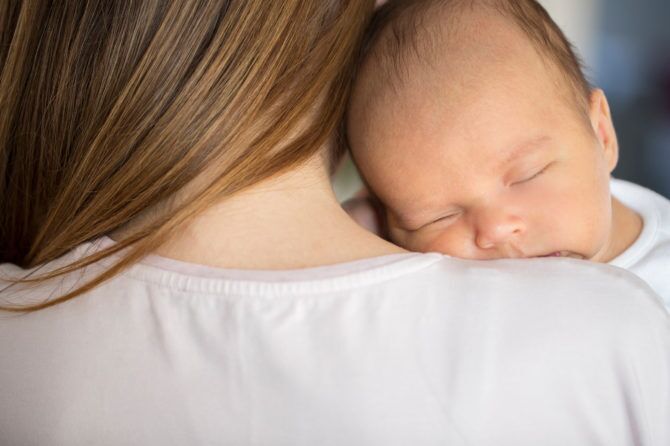
“Baby Cuddlers” in Hospitals Aid Babies Against Inherited Opioid Addiction
The opioid crisis in the U.S. becomes painfully apparent in the most unlikely of places—the neonatal intensive care units of hospitals across the nation. In these units, nurses and parents oversee the care of tiny infants as they shake and sweat their way through withdrawals. Hospital staff is working overtime to keep up with the needs of babies with inherited opioid addictions, and they’re turning to a more human approach to helping these children.
Citizen volunteers are being recruited by hospitals to help them comfort these tiny babies as they work their way through their first weeks of life and the pain of withdrawals. Known as “baby cuddlers,” these volunteers are trying to make the lives of babies with inherited addictions more comfortable and encourage these little ones to thrive.
The Scale of Inherited Opioid Addiction
In 2014 alone, more than 32,000 babies were born addicted to opioids. That is roughly one addicted infant born every 15 minutes. When opioids are used during pregnancy, the baby may experience a condition upon birth known as neonatal abstinence syndrome (NAS).
Infants often inherit their addiction from their mothers, but that doesn’t mean that their mothers abused opioids during their pregnancy. Often, babies with inherited addictions are born while their mothers are in treatment for opioid addiction and are on Buprenorphine/Naltrexone or buprenorphine for their symptoms. Obstetricians are aware that these treatments carry the risk of NAS, but feel it is still safer to have the mother continue her addiction treatment rather than have her quit cold turkey or relapse and continue to use opioids.
Treating infants with NAS is an expensive proposition. In 2014, $563 million was spent to treat babies suffering from an inherited opioid addiction. 82% of these costs were paid out by Medicaid since many of these babies were born to women living in lower-income communities.
The rising numbers of infants born with inherited addictions and the cost of treating them during their first weeks of life highlight the significance of the opioid crisis and the need for better control and addiction treatment.
Some hospitals are seeking to revamp their protocol for how infants with NAS are treated, which can bring down the length of their stay in the hospital, the cost of treatment, and offers better outcomes for the infants and their mothers. One of the new changes is the use of skin-to-skin contact with the infants’ mothers or volunteer baby cuddlers.
What Are the Repercussions for Addicted Infants?
For babies born with an inherited addiction, the developmental years ahead of them can be difficult. In 2017, a study linked poor school performance with NAS in children who were born with the condition. Parental intervention is an effective way to help keep children performing well in school, even for those who have experienced NAS.
Additionally, NAS and inherited addiction have been linked to other issues, such as auditory processing disorder. Researchers believe that opioids or opioid treatments, like buprenorphine, can interrupt the development of the fetus’s somatosensory networks.
NAS has also been linked to higher rates of ADHD and autism spectrum disorder symptoms, when compared to unexposed peers.
How Do Baby Cuddlers Help Addicted Infants?
More and more hospitals are implementing the use of baby cuddlers as a part of their NAS treatment protocols, and these changes are helping infants to thrive. Some hospitals even have waiting lists of more than two years for volunteers to join these popular programs.
What baby cuddlers do is simple—they hold infants securely and rock them or quietly interact with the babies. The results, however, are extraordinary. Many of the infants who are cuddled regularly by volunteers feed better, sleep better, and begin to engage with caretakers. These babies also begin to fuss less, which is a significant improvement when considering many infants with NAS are in pain from their condition. This improvement can indicate that they are experiencing less discomfort as they recover.
Skin-to-skin contact and cuddling have long been recommended to help new babies thrive and form bonds between parents and their infants. When infants are held in close contact with another person, they often have an easier time breastfeeding, continue to breastfeed for longer, establish healthy sleeping patterns, sleep more soundly, and engage with others around them, more frequently.
Baby cuddlers do much more than simply provide warm arms for addicted infants to rest in—they’re also an important factor in ensuring that these little ones have affectionate interactions and feel secure, which are two key factors for successful development later in life. Busy NICU nurses and mothers going through their own treatment programs do their best to provide the emotional connection these infants need to thrive, but when they can’t be there, baby cuddlers step up to fill in the gap and ensure these babies never feel they’re alone.
Get Personalized Addiction Treatment Today
If you or a loved one is struggling with drug or alcohol abuse, you don’t have to face your struggle on your own. Windward Way offers comprehensive drug addiction treatment options and alcohol rehab programs. Talk to our caring treatment team today to learn which programs may be right for you.
Are you ready to change your life for the better? Contact our offices to learn more!
Leave a reply